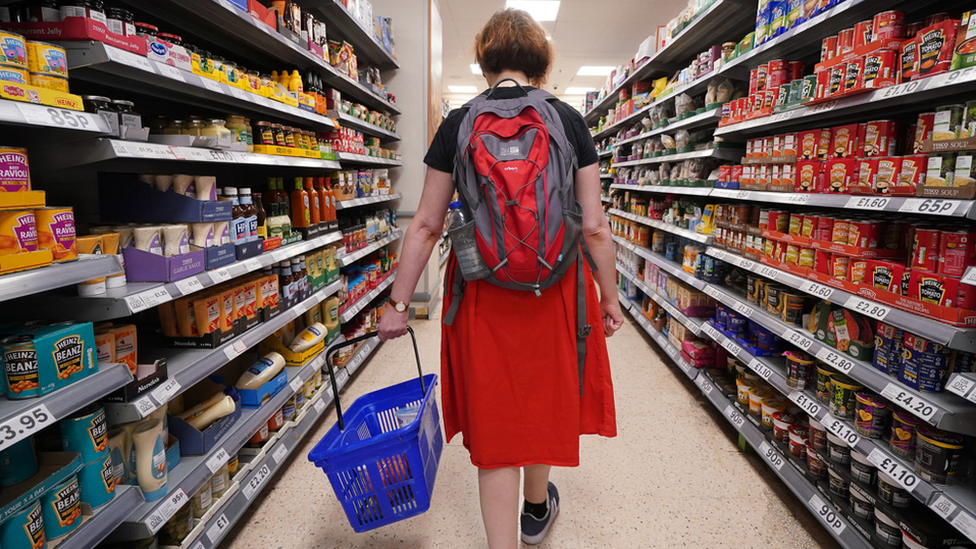Tesco boss won't predict when food price inflation will ease
- Published
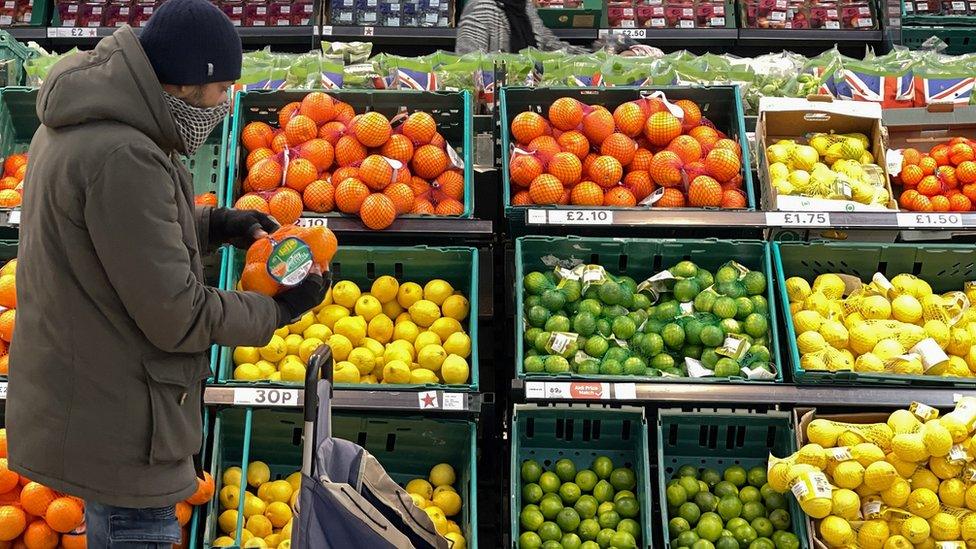
Food prices are currently soaring
The chairman of Tesco, the UK's biggest retailer, says he cannot forecast when rises in food prices will peak.
But John Allan said the supermarket was "doing our bit" to help customers cope with the impact of high inflation.
Shortages of fresh produce helped push food inflation to 18.2% in the year to February, the highest since 1978.
Amid the cost-of-living crisis, Mr Allan wants the government to expand free school meals in England, saying too many children are going hungry.
He said soaring food prices meant there were people who were "very, very, very hard pressed", adding that Tesco was trying to help customers cope by showing them ways in which they can economise.
Looking ahead, he said: "Most people expect there will be some easing of inflation. I'm not going to be brave enough to forecast how much and when, but it's likely to go down."
In a wide-ranging interview, Mr Allan also denied that Tesco was taking advantage of higher prices to make bigger profits.
He said that Tesco's profit margin of 4p in the pound was "slender" compared to other industries.
Child poverty concerns
Mr Allan is backing Bite Back 2030, a youth-led charity movement campaigning for a fairer food system.
"I have a huge personal concern about the return of child poverty in the UK, " he told the BBC, saying that growing up he saw children who were suffering because they were in poverty.
"I think the grounds for being concerned about this are largely moral, they're not economic."
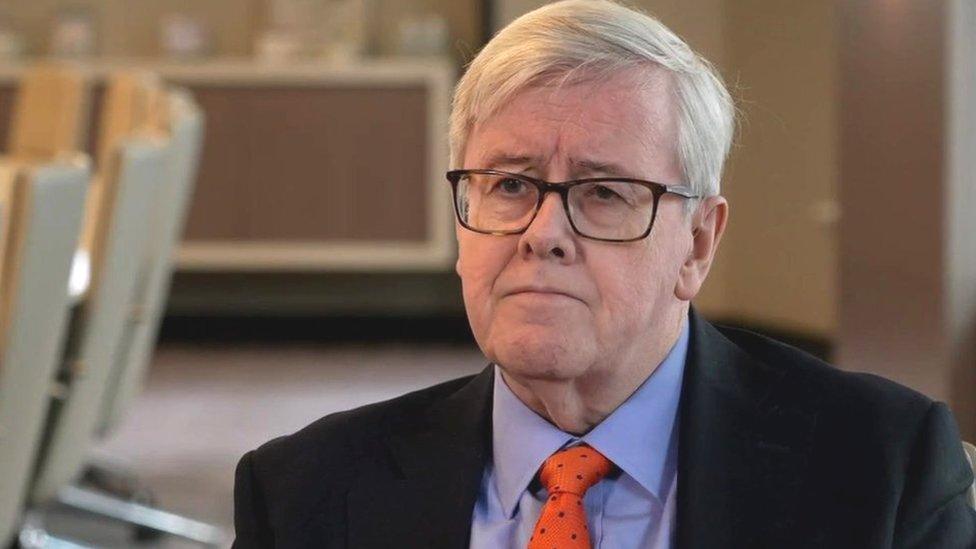
John Allan believes boosting the free school meals scheme should be a priority for the government
To qualify for free school meals in England, a household can't have earnings above £7,400, excluding benefits.
But there are thought to be around 800,000 children whose parents earn just above that and are missing out.
Extending free school meals to all families in receipt of universal credit, Mr Allan said, should be one of the highest priorities for ministers amid the cost-of-living crisis.
A Department for Education spokesperson said: "Over a third of pupils in England now receive free school meals in education settings, compared with one in six in 2010, and we have made a further investment in the National School Breakfast Programme to extend the programme for another year, backed by up to £30m."
Profits in spotlight
The Bank of England governor, Andrew Bailey, recently suggested that businesses should think twice before raising prices to cope with rising costs, because it could drive up the cost of living even further.
"By and large, we have to accept the price increases that our suppliers provide. All the evidence I've seen suggests that Tesco has been raising prices more slowly than our competitors," Mr Allan said when asked about the governor's plea to firms.
He faced a backlash over recent comments that appeared to accuse suppliers of profiteering from inflation.
But Tesco's own profits will be in the spotlight in a few weeks' time when it delivers its full-year results.
Mr Allan said he couldn't comment on the expected figures but hit back at any suggestion the business was making too much money at the expense of customers.
"Anyone who thinks that four pence in the pound as a profit margin is excessive, I'd love to have a conversation with because, you know, in comparison with most other industries those are very, very slender returns on sales."
Although sales numbers were "obviously big", he insisted there was a great deal to do to "maintain the fabric" of the business and invest.
Tesco has faced an outcry from suppliers over plans to charge new fees to sell products online. Mr Allan said the firm was working "constructively" with suppliers.
"We always made clear this was a voluntary programme. We've taken great care to ensure that we comply with the requirements of the grocery codes adjudicator.
"We'll just have to wait and see what the outcome of those discussions is.

How are you coping with the rising cost of living? Share your experiences by emailing haveyoursay@bbc.co.uk, external.
Please include a contact number if you are willing to speak to a BBC journalist. You can also get in touch in the following ways:
WhatsApp: +44 7756 165803
Tweet: @BBC_HaveYourSay, external
Please read our terms & conditions and privacy policy
If you are reading this page and can't see the form you will need to visit the mobile version of the BBC website to submit your question or comment or you can email us at HaveYourSay@bbc.co.uk, external. Please include your name, age and location with any submission.
- Published11 October 2022
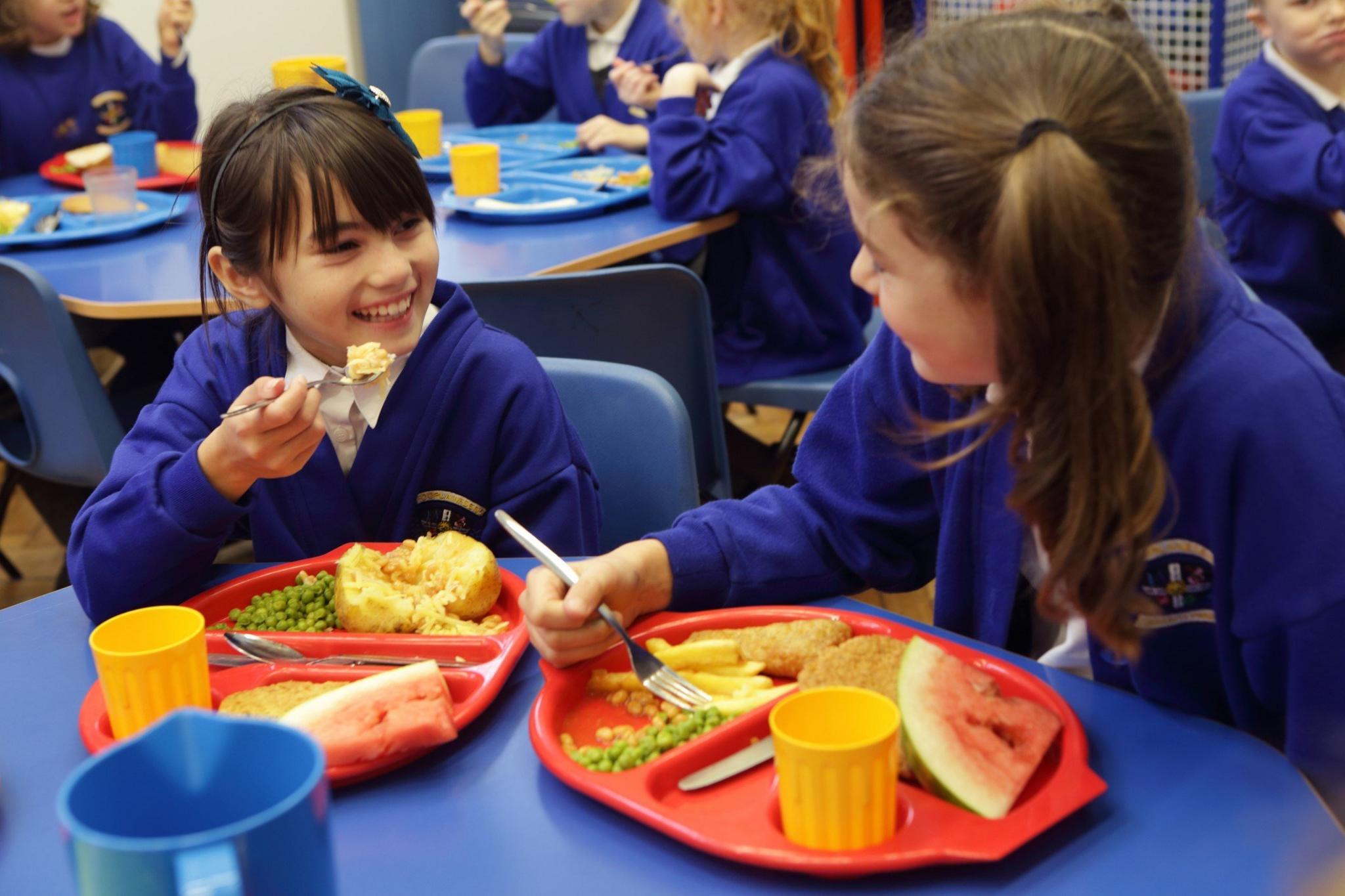
- Published22 March 2023
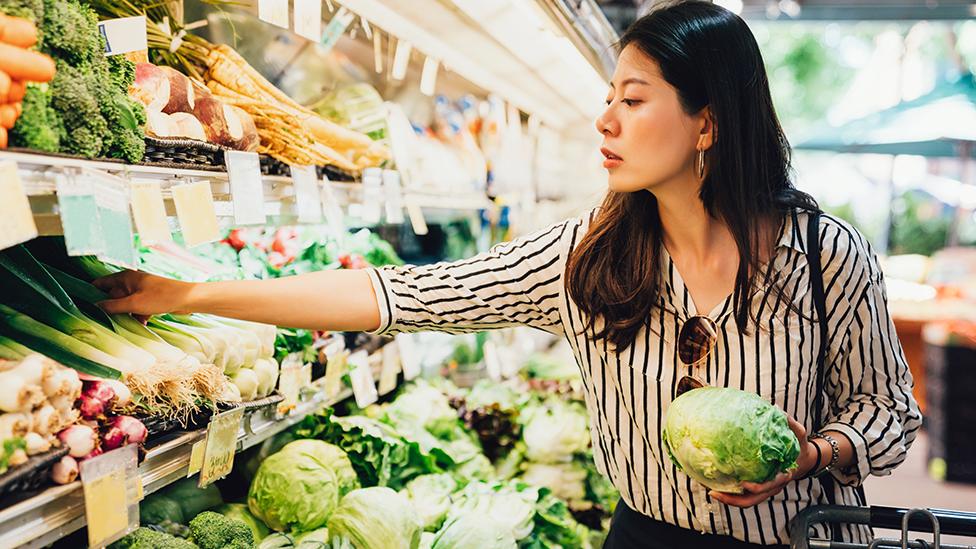
- Published10 March 2023
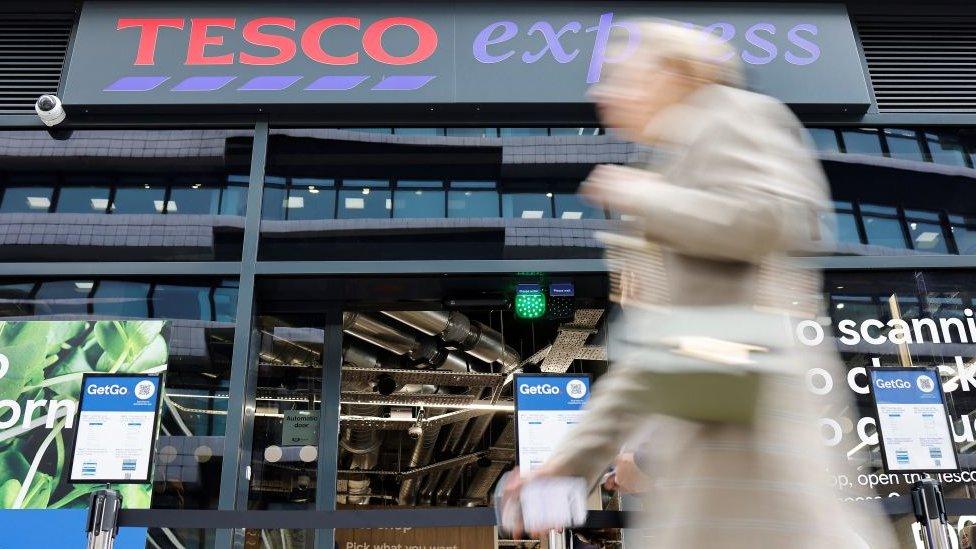
- Published23 January 2023
